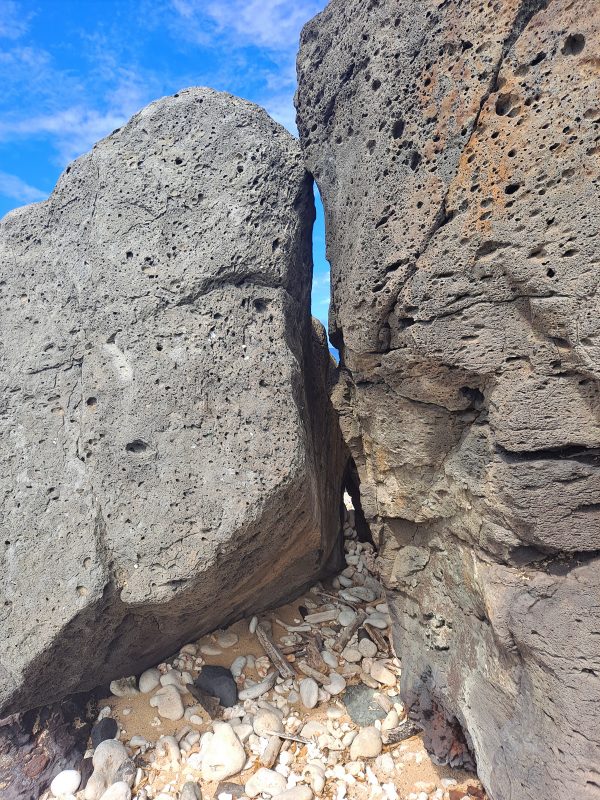
Question 13: What inspires you?
I would say in this order: Nature as a book of revelation, moʻolelo or story, and finally: color and texture. This photo is deeply inspirational to me and has all three elements begging to be made into something in response by me seeing this, being there, remembering the stories.
Growing up in Hawaiʻi, as a 4th generation kamaʻaina, there is a deep love and connection I have to the land here. I am not ethnically Hawaiian, but being brought up here and learning from kūpuna hawaiʻi of the stories and values they had I find when I travel, how deeply their imprinted me. My own family, of Japanese heritage, also taught me love and respect for the land. We are stewards in a fragile, unpredictable world where man should be grateful and respectful of the land as provider of our food and shelter but can also be just as easily taken away. Farmers, as the Japanese director Akira Kurosawa often portrayed in his films were the true nobles of society, not the samurai or upper classes who, being immersed in politics, sometimes were separated from nature and the land. As an American, the values of Christian belief in the law, justice, mercy, service and charity were also absorbed into the roasted blend of who I am today.
Question 14: How did you get better at watercolor?
I just keep painting. I study other masterworks but I donʻt watch how-to videos or go to workshops. At this point, I am more concerned with my own vision and developing my style and themes according to my inner guides and questions. If I were starting out today, though, there is a wealth of knowledge out there from free to very expensive but I think the trick is to find a way to direct your study from beginner to intermediate to advanced. Beginners need to learn techniques and best practices that work for you. Intermediate painters need to hone their skills so they can pursue and execute their visions and find their style. Advanced painters have their style and practice but need to keep evolving and challenging themselves. The more advanced you get, the less instruction you need and the more good advice and strong confidence in yourself is needed to keep you from becoming an imitator or follower of trends. But above all, keep painting!
Question 15: What other jobs did you have before becoming a watercolor artist?
I have had a lot of jobs. Some I took so I could have the time and freedom to paint. Some I took because it offered me the opportunity to use my creativity and get paid for it. Sometimes it allowed both. I would say, nowadays there are other paths to becoming a watercolor artist or any particular kind of artist depending on what medium you love. I have worked in an art gallery selling work I didnʻt like. I have worked on night shifts in Kinkos in Berkeley on Telegraph Avenue, an organic cotton clothing store, a toy store, a newspaper, an engineering firm, freelance jobs, teaching, and the last jobs were with the R&D internal company Volo Technology and Volvo Trucks in Sweden.
I didnʻt understand what my grandma meant when she said to do what I love and it will work out. Or maybe I didnʻt believe her. Probably both, I didnʻt understand and thus didnʻt believe. I didnʻt know that if you pursue something with passion and strive for excellence, you will find the job or the job will find you. You canʻt be so smart and figure it all out beforehand, because by the time you finish high school and college and get out, and get your 1st, 2nd or 3rd job, the job you thought you could do probably doesnʻt exist. New ones pop up all the time. So it was true then, and it is even more true now. Pursue your passion with excellence as your goal and donʻt be proud about how you get to do it, take jobs you need to get you through and you wonʻt settle and miss out on the opportunity that will be yours if you commit. Proverbs 22:29 can be true if you are honest enough to admit it and commit it to God.